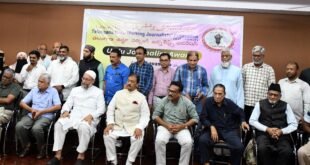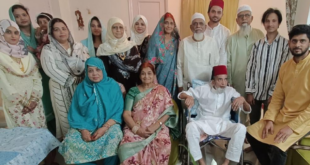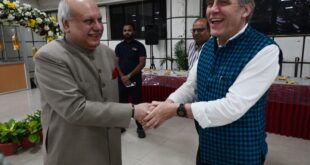by: Asad Mirza
The political developments during the last five years, and in particular since the last May have forced many a Muslim intellectuals, community sympathisers and well-wishers to turn into a pessimist. They are brooding that many recent political developments and reaction of the Muslim religious and community leaders to them, do not bode well for the community.
However, many of the recent decisions and regulations of the right-wing establsihment in India can be described as detrimental to the Muslims interests. The plans to amend the Muslim Personal Law and its replacement with common civil code, re-writing of Indian history, glorifying cow protection, interference in triple talaq issue, getting the way cleared for construction of the Ram mandir at Ayodhya, abrogating Art 370 in Kashmir and allowing non-Kashmiris (read Hindus) to buy property in Kashmir, are all deliberate acts towards the marginalisation of Indian Muslims.
In this age of information technology, many a battles are being fought and won using the social media tools. The latest example in this regard is the surge in Islamophobic messages on the social media and response of the Muslim nations to it. Due to the overwhelming and immediate tough response of the Muslim countries, many social media platforms had to issue guidelines on how to manage the Islamophobic content, besides immediate remorse shown and forgiveness sought by people who engaged in posting Islamophobic content on various social media websites.
In addition, many western countries and international organisations have taken due notice of anti-Muslim policies and activities of the right-wing government, curbing religious freedom and have asked the establishment to amend its ways. This international pressurization has resulted in some remedial actions. But, we also have to understand that we Muslims, as citizens of India, have some responsibilities too, besides being a model Muslim.
For the latter, the role of Muslim clergy is a crucial one. All said and done, still a large number of uneducated Muslims follow their religious leaders blindly and whole heartedly. However, they should be aware that to present a positive image of themselves and their religion, they have to adhere to the basic tenets of Islam, first. As ordained in Islam, they should try to get education for themselves and their progeny, maintain cleanliness in their colonies and follow practices which ensures safety for them and others.
But the reality is that a vast multitude of Indian Muslims act completely uncontrollably. Instead of getting education and increasing the chances of their economic prosperity, they are content with following low paid, semi-skilled jobs. They believe in mob mentality and are least bothered by the issues of education, sanitation, progress and openness.
In this regard, to a vast extent they are also guided by the clergy, which is responsible for creating so many sects and denominations amongst the Indian Muslims, for its own economic well being. A recent example is the current Lockdown in India. Even ten days after the Lockdown and Ramzan fast approaching near, there was no guidnace forthcoming by the clergy on the issues of community praying at mosques, performing Juma prayers or Taraweeh prayers and several other issues with religious overtones. The guidance came after a long period of wait and every sect wanted its guidance to supercede the other. What we need today, is the unity amongst different sects of the Indian Muslims and proactive actions from our religious leaders, instead of their followers asking for guidnace, they should provide guidance in advance on every issue, because the reality is that a vast multitude of Indian Muslims still listen to their clergy and not to their social leaders.
It becomes incumbent upon our religious leaders to forge unity amongst the Indian Muslim Ummah and lead them in their political, social, economic and religious life. And thus they’ll have to devise strategies on how to overcome obstacles in partnership with other religions also. For the current dispensation, religions like Parsis or Jews are considered as guests of India, while Christians and Muslims are considered as invaders, thus they deserve to be driven out or made second class citizens. As an enemy of your enemy could be your friend, Indian Muslims will have to forge amicable partnerships with religions like Christianity for their survival in India, and in this manner they’ll also be able to gain support of other countries, many of whom follow Christianity as state religion. Thus, Indian Muslims have to reform themselves and forge new friendships and accords, besides strive hard to co-exist in a fats changing scenario in the country.
About the author:
Asad Mirza is a Sr journalist based in New Delhi. In his career spanning more than 20 years, he was associated with BBC Urdu Service and Khaleej Times of Dubai. He writes on Muslims, educational, international affairs and interfaith issues. Email: asad.mirza.nd@gmail.com
 Gawah (The Witness) – Hyderabad India Fearless By Birth, Pristine by Choice – First National Urdu Weekly From South India – Latest News, Breaking News, Special Stories, Interviews, Islamic, World, India, National News
Gawah (The Witness) – Hyderabad India Fearless By Birth, Pristine by Choice – First National Urdu Weekly From South India – Latest News, Breaking News, Special Stories, Interviews, Islamic, World, India, National News



